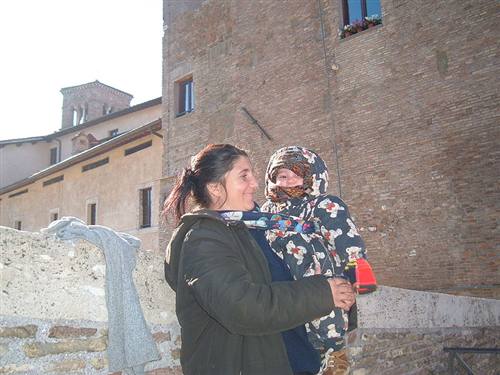
By Jasmina Munteanu
Romania entered the European Union on the 1st of January 2007. Romanian emigration to Italy is relatively high, with the Romanian community in Italy numbering 796.477 as of December 2008.
Among the Romanian building workers, entrepreneurs, and housekeepers in Italy there are circa 40.000 Romanian citizens of Roma ethnicity. These circumstances have not been met with an accommodating attitude, as there is hatred and hostility directed towards the new entering citizens.
It started with a case referred to as
“Mailat”: a Romanian citizen with Roma ethnicity was accused for the murder of Italian citizen Giovanna Reggiani in October 2007. Due to this case, the entire Romanian population in Italy as well as the country itself have been cast as murderers, thieves and rapists by Italian politicians and media.
Roma people are citizens of the European Union, but Italy is implementing special legislation in order to keep them out of the country. Of the 160.000 Roma citizens found in Italy in 2006, there are now only 40.000.
Italy has enacted a law which gives municipalities the right to decide whether the camps where Roma people live should be legalized, semi-legalized or illegal. They have the right to forcibly remove the people living in these camps if they deem it necessary. The latest eviction took place in the Casilino 200 camp close to Rome where 500 Roma people where thrown out in the streets. The people have not been offered alternative accommodation and the police ignored reprimands from several humanitarian organizations as Amnesty International and the Red Cross.
Roma people have been persecuted since the second World War. The situation today is comparable with the Holocaust. The United Nations Committee on the Elimination of All Forms of Racial Discrimination sees the global Roma community as the largest that is subject to discrimination in the contemporary world. The Racial Equality Directive states that there should be no direct or indirect discrimination based on race or ethnic origin. This should have been enforced in all EU countries before July 19, 2003. The European Roma Rights Center is one of the most active groups working for Roma people within the European Union.
Italy receives recommendations and reports from Amnesty International and the EU Commissioner for Human Rights, Thomas Hammarberg, but the results are unsuccesfull. The country complains of having too many refugees to deal with; however statistics from 2001 to 2006 show that Italy is in eighth position on the list of EU countries receiving requests for asylum, while the numbers for immigration in total places Italy in the top four behind the UK, Spain, and Germany (in 2006, there were almost 400.000 immigrants). Italy has a law for obtaining citizenship that requires 10 years of continuous stay in the country. This gave citizenship to 35.266 people in 2006.
It is time for a change in which Human Rights are prioritized and a country that is part of the EU should act after the regulations and the directives of the union!
April 25, 2010